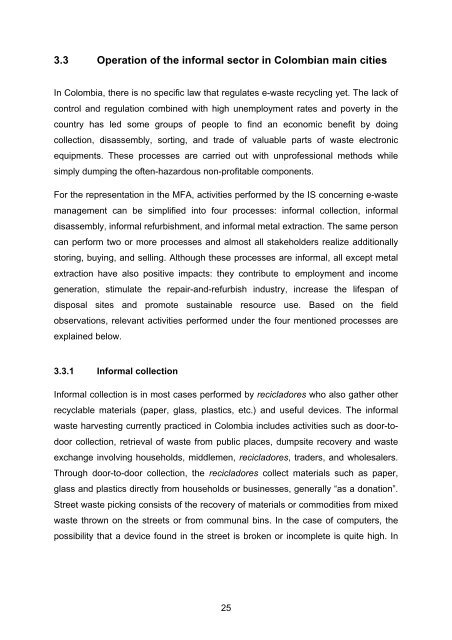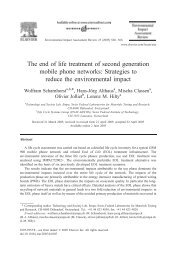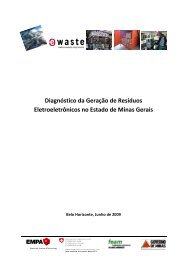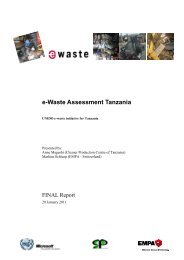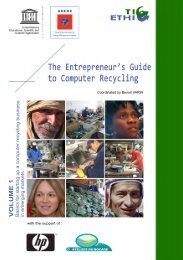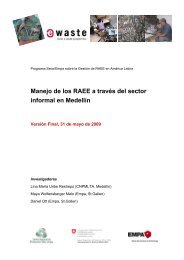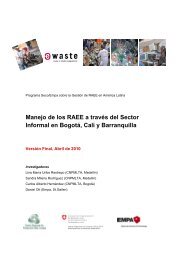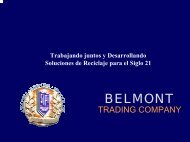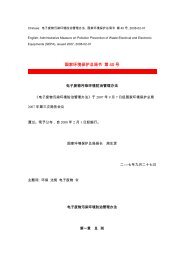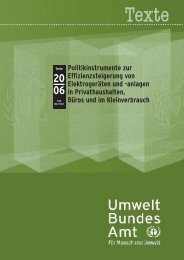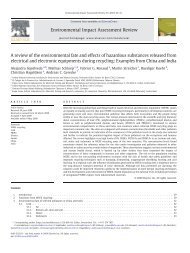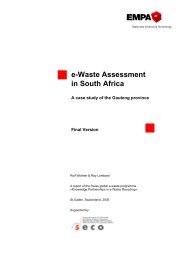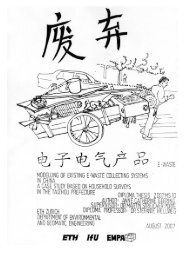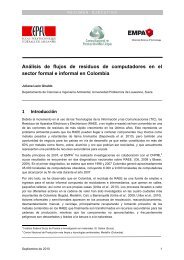10 07 29 Master thesis Juliana Leon - e-Waste. This guide
10 07 29 Master thesis Juliana Leon - e-Waste. This guide
10 07 29 Master thesis Juliana Leon - e-Waste. This guide
Create successful ePaper yourself
Turn your PDF publications into a flip-book with our unique Google optimized e-Paper software.
3.3 Operation of the informal sector in Colombian main cities<br />
In Colombia, there is no specific law that regulates e-waste recycling yet. The lack of<br />
control and regulation combined with high unemployment rates and poverty in the<br />
country has led some groups of people to find an economic benefit by doing<br />
collection, disassembly, sorting, and trade of valuable parts of waste electronic<br />
equipments. These processes are carried out with unprofessional methods while<br />
simply dumping the often-hazardous non-profitable components.<br />
For the representation in the MFA, activities performed by the IS concerning e-waste<br />
management can be simplified into four processes: informal collection, informal<br />
disassembly, informal refurbishment, and informal metal extraction. The same person<br />
can perform two or more processes and almost all stakeholders realize additionally<br />
storing, buying, and selling. Although these processes are informal, all except metal<br />
extraction have also positive impacts: they contribute to employment and income<br />
generation, stimulate the repair-and-refurbish industry, increase the lifespan of<br />
disposal sites and promote sustainable resource use. Based on the field<br />
observations, relevant activities performed under the four mentioned processes are<br />
explained below.<br />
3.3.1 Informal collection<br />
Informal collection is in most cases performed by recicladores who also gather other<br />
recyclable materials (paper, glass, plastics, etc.) and useful devices. The informal<br />
waste harvesting currently practiced in Colombia includes activities such as door-todoor<br />
collection, retrieval of waste from public places, dumpsite recovery and waste<br />
exchange involving households, middlemen, recicladores, traders, and wholesalers.<br />
Through door-to-door collection, the recicladores collect materials such as paper,<br />
glass and plastics directly from households or businesses, generally “as a donation”.<br />
Street waste picking consists of the recovery of materials or commodities from mixed<br />
waste thrown on the streets or from communal bins. In the case of computers, the<br />
possibility that a device found in the street is broken or incomplete is quite high. In<br />
25


